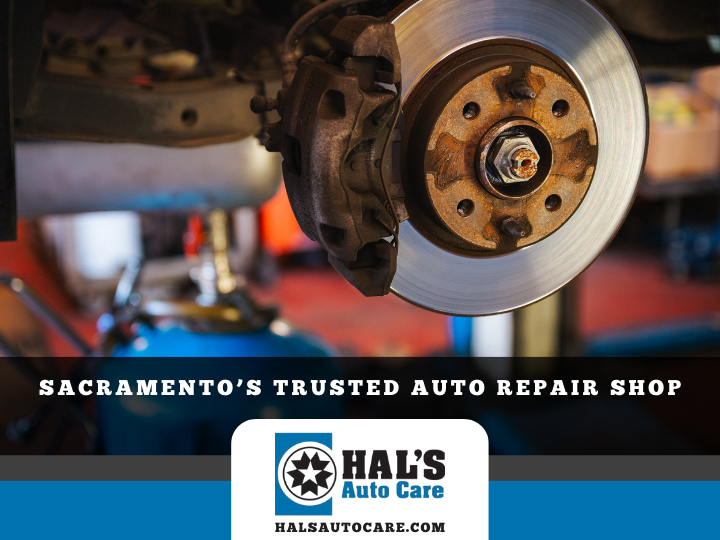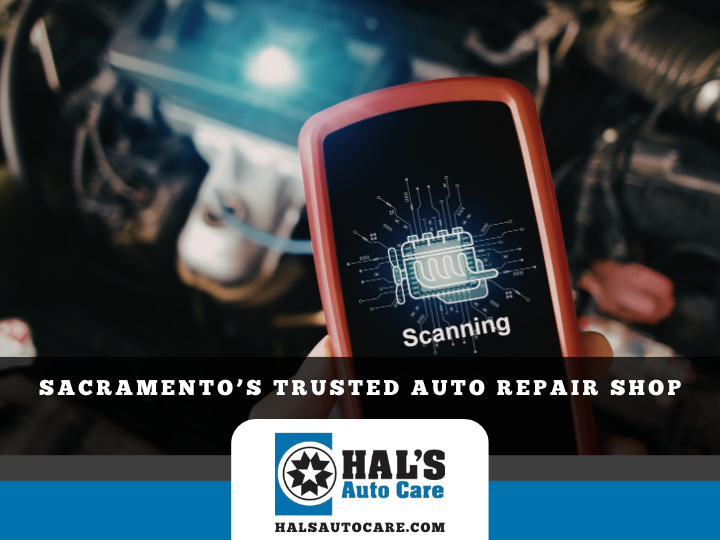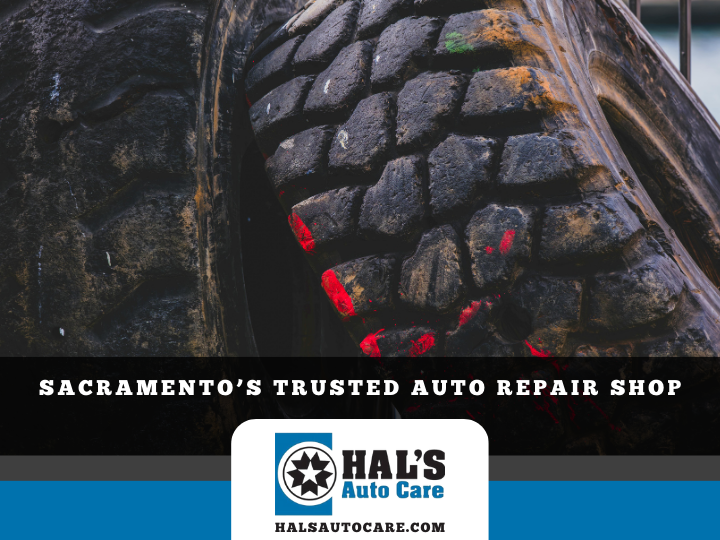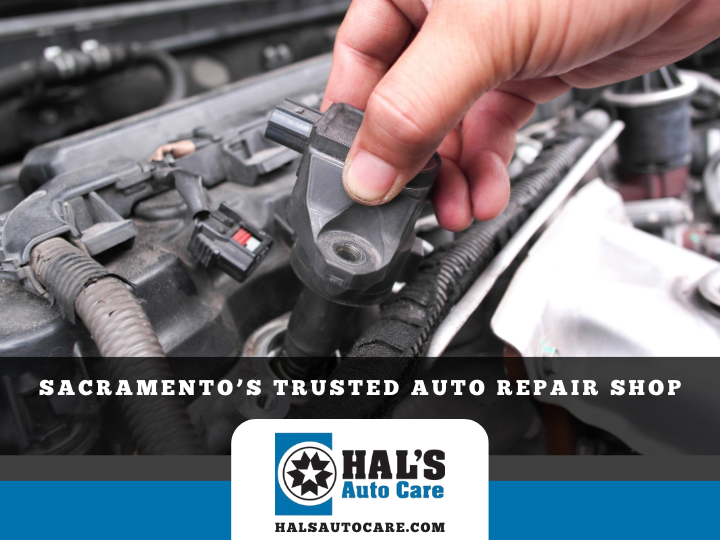Why does my truck smell like rotten eggs?
Why does my truck smell like rotten eggs?
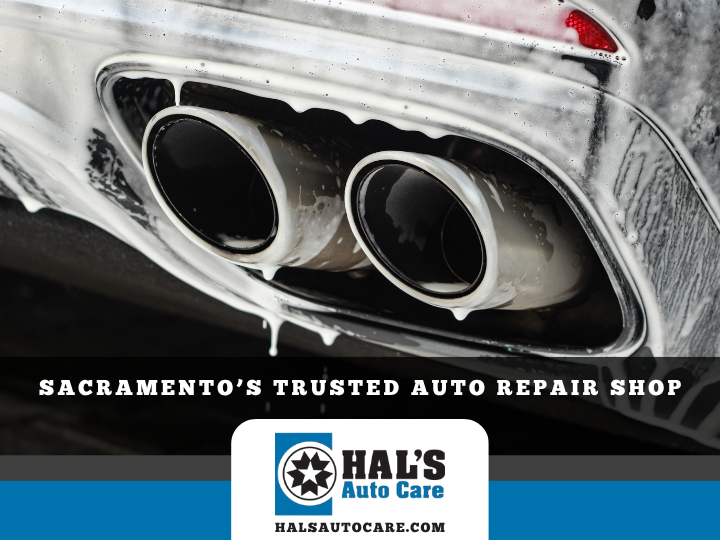
Why Does My Truck Smell Like Rotten Eggs? Understanding the Sulfur Odor and How to Eliminate It
If you’ve ever started your truck and caught a strong whiff of rotten eggs or sulfur, it’s a sign that something isn’t working correctly in your vehicle’s fuel, exhaust, or charging system. That smell is more than an inconvenience—it’s an early warning that your engine, catalytic converter, or battery could be struggling to perform as designed.
Drivers throughout Sacramento, Carmichael, Arden-Arcade, and Fair Oaks, CA often notice this odor during daily commutes or while idling in traffic on hot days. The truth is, this sulfur smell is your truck’s way of telling you that chemical reactions inside your system aren’t completing as they should.
This comprehensive guide explains why your truck smells like rotten eggs, how to identify where the odor is coming from, and what steps you can take to resolve the problem before it leads to serious damage.
1. The Science Behind the Rotten Egg Smell
The rotten egg smell is caused by hydrogen sulfide (H₂S) gas. It’s a natural byproduct of fuel combustion, created when sulfur in gasoline doesn’t burn completely. Normally, your catalytic converter converts hydrogen sulfide into odorless sulfur dioxide (SO₂).
But when something goes wrong—like a failing converter, rich fuel mixture, or overcharged battery—the hydrogen sulfide escapes unprocessed, resulting in that distinct sulfur odor.
So, while the smell itself isn’t directly harmful in small amounts, it’s a clear indicator that something mechanical or chemical isn’t functioning correctly within your truck.
2. The Catalytic Converter: The Most Common Cause
Your catalytic converter is one of the most vital parts of your exhaust system. It’s responsible for transforming harmful gases into less harmful emissions before they exit the tailpipe.
When the converter becomes clogged, contaminated, or worn out, it can no longer efficiently process exhaust gases, allowing hydrogen sulfide to pass through unchanged.
Why Catalytic Converters Fail
- Engine misfires sending unburned fuel into the exhaust
- Coolant or oil leaks entering the combustion chamber and damaging the catalyst material
- Rich fuel mixture overwhelming the converter with excess hydrocarbons
- Internal breakdown over time due to heat and wear
Signs of a Failing Converter
- Rotten egg smell near the exhaust
- Reduced power or sluggish acceleration
- Poor fuel efficiency
- Check engine light with codes like P0420 (catalyst efficiency below threshold)
- Rattling or metallic noises from underneath the truck
When the catalytic converter is the cause, the smell typically grows stronger as the truck warms up or accelerates.
3. Fuel System Issues: When Your Truck Burns Too Rich
The second most common cause of a sulfur odor is a fuel system running too rich, meaning there’s too much fuel and not enough air in the combustion process.
A rich mixture overloads the catalytic converter with unburned fuel, which reacts inside the converter to produce hydrogen sulfide.
Common Fuel System Problems
- Bad fuel pressure regulator sending too much fuel to the injectors
- Dirty or leaking fuel injectors creating uneven combustion
- Faulty oxygen sensors causing incorrect air-fuel ratio readings
- Clogged air filter restricting airflow
Symptoms of a Rich Fuel Condition
- Strong sulfur or fuel smell
- Black smoke from the exhaust
- Rough idling or poor acceleration
- Decreased fuel mileage
Sacramento drivers often experience these conditions during short urban drives—especially in hot weather when fuel vapors expand and combustion balance shifts. A quick diagnostic check can confirm if your truck’s fuel system is the source of the smell.
4. The Battery: A Hidden Yet Serious Source
Although less common, an overcharging battery can also produce a rotten egg odor. When your truck’s alternator or voltage regulator malfunctions, it can overcharge the battery, causing sulfuric acid to vent hydrogen sulfide gas.
How to Tell if the Battery Is the Problem
- The smell is strongest near the engine bay, not the exhaust.
- You see corrosion or moisture around the battery terminals.
- The battery feels hot or swollen.
- Electrical issues or dimming lights occur.
This is more than a simple maintenance issue—it’s a safety concern. Overcharging can cause the battery to leak, corrode components, or in extreme cases, explode. If you suspect the smell comes from under the hood, stop driving and have your truck inspected immediately.
5. Why You Should Never Ignore the Smell
That rotten egg odor may seem minor, but it’s a red flag for deeper system issues that can escalate quickly if ignored.
Consequences of Waiting Too Long
- Catalytic converter failure: Once clogged or melted, it can choke exhaust flow and overheat your engine.
- Fuel efficiency loss: Poor combustion increases fuel waste and damages sensors.
- Battery corrosion: Hydrogen sulfide gas can damage electrical components and metal parts.
By addressing the problem early, you protect your truck’s performance, longevity, and reliability.
6. The Diagnostic Process: How Technicians Pinpoint the Problem
A professional diagnostic inspection involves several targeted tests to identify the true source of the odor.
Step 1: Identify the Smell’s Location
Is it coming from under the hood or near the tailpipe? This determines whether it’s battery-related or exhaust-related.
Step 2: Scan for Error Codes
A technician uses a diagnostic tool to scan for engine and emissions codes. Common ones include oxygen sensor, fuel trim, or catalytic converter efficiency errors.
Step 3: Check Air-Fuel Ratios
This test determines if the engine is running too rich or too lean.
Step 4: Inspect the Catalytic Converter
Technicians look for discoloration, internal rattling, or excessive heat damage.
Step 5: Test the Charging System
Voltage readings reveal if the alternator is overcharging the battery.
Step 6: Inspect for Contamination
Oil or coolant leaks entering the exhaust can create similar odors and should be ruled out.
This structured approach ensures the real issue is fixed—not just the symptoms.
7. Preventing the Rotten Egg Smell in the Future
After your truck is repaired, prevention becomes key to avoiding the sulfur odor again.
Practical Maintenance Tips
- Use high-quality fuel from trusted stations around Sacramento and Carmichael.
- Replace air and fuel filters regularly for balanced combustion.
- Maintain spark plugs and ignition components to prevent misfires.
- Monitor the battery and charging system at each service interval.
- Take occasional longer drives to allow the catalytic converter to reach full temperature and self-clean.
These small habits can dramatically reduce the risk of recurring odors and extend the life of critical components.
8. Why This Issue Is Common in Sacramento
The local climate and driving conditions in Sacramento play a major role. High summer temperatures, short commutes, and heavy traffic on I-80 or Arden Way all create conditions that strain catalytic converters and fuel systems.
When your truck frequently idles in traffic or drives short distances, it may never reach the optimal temperature for complete fuel combustion. Over time, that leads to unburned fuel accumulation and excess sulfur emissions.
Drivers in Carmichael, Fair Oaks, and North Sacramento face similar challenges—especially those who tow, haul, or drive older vehicles.
9. When to Schedule a Professional Inspection
You should book a diagnostic inspection as soon as you notice:
- Persistent rotten egg smell after driving or idling
- Reduced engine performance
- Check engine light on
- Unusual rattling or overheating underneath the truck
- Odor coming from under the hood
A trained technician can quickly determine whether it’s the converter, fuel mixture, or battery—and make the proper repairs before further damage occurs.
10. What Happens During Service
At a professional shop, your vehicle will undergo:
- Computerized diagnostics to identify fault codes.
- Catalytic converter and exhaust inspection.
- Air-fuel system testing.
- Battery voltage and charging system evaluation.
- Transparent repair recommendations to address the root cause.
By correcting the issue early, you restore fuel efficiency, eliminate odors, and ensure your truck operates cleanly and safely.
11. Benefits of Repairing the Rotten Egg Smell
Once repaired, the improvements are immediate and long-lasting:
- No more sulfur odor in or around your vehicle.
- Improved acceleration and throttle response.
- Better fuel economy and cleaner emissions.
- Extended lifespan of your catalytic converter and sensors.
- Peace of mind knowing your truck is running efficiently and safely.
12. Final Thoughts: The Smell Is a Signal, Not an Accident
A truck that smells like rotten eggs is warning you about an imbalance in how it burns or processes fuel. Whether the issue lies in your catalytic converter, fuel system, or battery, the solution begins with a proper inspection and diagnosis.
Addressing it early prevents damage, restores performance, and ensures your truck continues to serve you reliably—mile after mile.
If your truck smells like sulfur or rotten eggs, get it checked by trusted professionals today.
Hal’s Auto Care
2425 Tower Ave, Sacramento, CA 95825
Phone:
(916) 485-9215
https://halsautocare.com/services/
Proudly serving Sacramento, Arden-Arcade, Carmichael, Fair Oaks, and the greater Sacramento area with expert auto repair and diagnostic services.
You can watch the video





